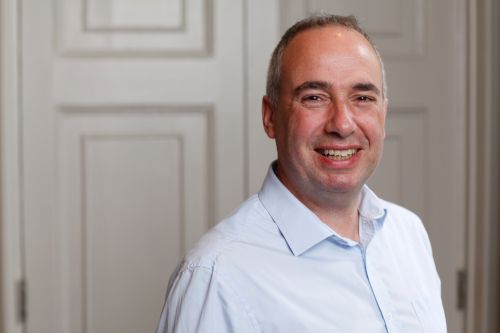
Focus on Alumni
Professor Ambrose Field (PGCE, 1992) is Pro-Vice-Chancellor for Global Strategy at the University of York
I encountered powerful ideas on my course at Robinson which are still valuable to me today. Reflecting on why this might be, I'm proud to say that the programme has had lasting value even though I do not work in the exact sector I once intended to. For me, this comes down to the presence through all the activities of critical thinking, challenge, and academic generosity. The latter isn't much talked about. The academic generosity I encountered is an approach to teaching and learning that enables students to have a distinctive voice, and to build their own work in a supportive environment. It is both good guidance and a tangible openness, making use of students to bring their thoughts and ideas to current problems, however formative they might be. And importantly, these aspects were situated in an informed, equitable, and evidence-based environment.
My daily work brings me in contact with government and diplomatic mission across the world. There have been important changes in the global outlook to education in recent years, driven in part by a rapidly changing geopolitics and increasingly domestic responses that foreground local solutions to global issues. The UK has traditionally seen trans-national education as valuable export. But it is more than that, it can act as a means to help unlock the global gridlock that the UN Human Development Report critically identified in 2024.
To achieve this, it is vital education is research informed and interdisciplinary - linked to national and regional needs and priorities. It is also vital that our educators - of all kinds - are invested in, and that they remain able to develop their disciplines. Interdisciplinary research also plays an essential role in bridging this connection between instruction and application.
Today there are plenty of means for knowledge delivery. Education is so much more than that: to resolve global gridlock we must be open to perspectives other than our own and be open to challenge. This starts from school teaching and continues right through to professional development. We must avoid an empty sense of pluralism where layers of culture are simply overlayed. It is mutual understanding and dialogue that forms the bridge, and the arts and culture have an equal role to play in engendering this dialogue as does our national effort in science and technology. Striking this balance requires careful diplomacy and enlightened stewardship.
In this respect, the team at Cambridge was inspirational. I'm deeply grateful for the work of John Finney, a transformative education leader, and Lesley Hendy - one of the most generously creative people I have encountered to this day. These academics let me submit traditional assignments in decidedly non-traditional ways, allowed me to use department facilities to create community benefit outside the course and made sure I could test out theory against the real world before coming to any conclusions.
I also remain deeply grateful to the late Lord Lewis, the first Warden of Robinson, for his support. As a student, I had secured a conference presentation at one of the discipline’s largest events but had no personal means of getting there. ‘There’ was Austin, Texas. Outside of college, I was told it was perhaps "unusual" for an education student to be seeking research support funds, let alone for something so far away. That however wasn't an issue for Lord Lewis: he was simply keen to assist students on their path, whatever that might be.
The value of the unusual, concern for people, and the support for innovation at Robinson is something I won't easily forget.